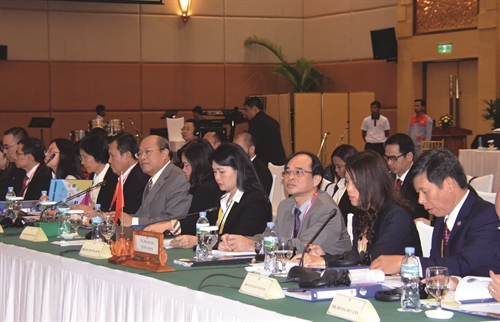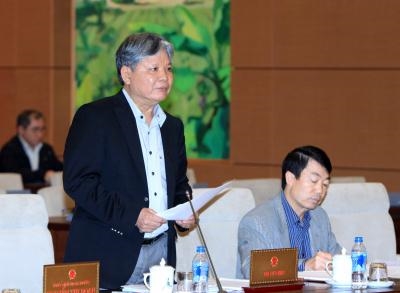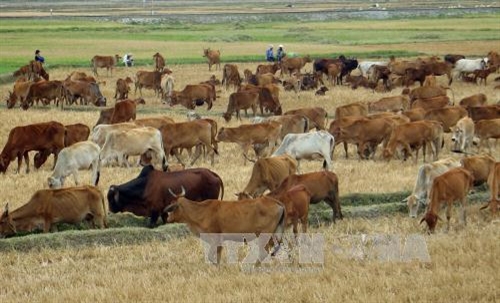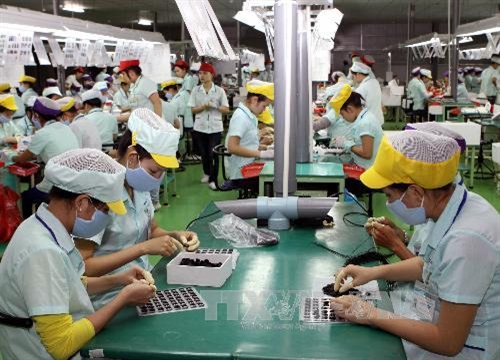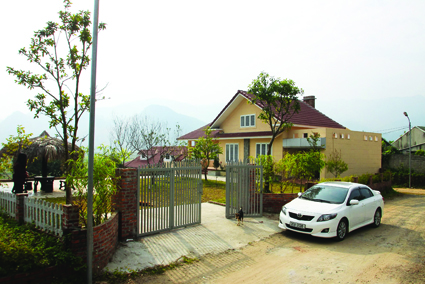The Law on Election of Deputies to the National Assembly and Deputies to People’s Councils (the 2015 Law) aims for promotion of democracy and improvement of the mechanism for election of deputies to the National Assembly and deputies to People’s Councils, ensuring the conformity with the Constitution and legal system for citizens to fully exercise their candidacy and voting rights.
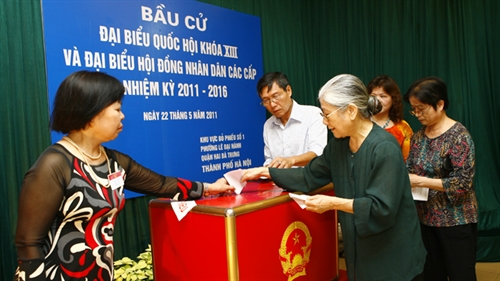 |
| The election day must be a Sunday and will be announced at least 115 days in advance__Photo: tienphong.vn |
The 2015 Law consists of 98 articles arranged in 10 chapters. Compared to the 1997 Law on Election of Deputies to the National Assembly (revised in 2001 and 2010) and the 2003 Law on Election of Deputies to People’s Councils (revised in 2010), the 2015 Law actually has significant changes.
Competence to decide on national election day
The National Assembly will decide on a day for nationwide election of deputies to the National Assembly and deputies to People’s Councils. It will also decide on the by-election of deputies to the National Assembly during a term of office and decide to establish the National Election Council. The decisions fall within the competence of the National Assembly Standing Committee under the 1997 Law on Election of Deputies to the National Assembly and the 2003 Law on Election of Deputies to People’s Councils.
The election day must be a Sunday and will be announced at least 115 days in advance.
Structure and number of National Assembly and People’s Council deputies
The National Assembly Standing Committee will propose and assign the number of National Assembly deputies to be elected in each province or centrally run city.
Each province or city must have at least three deputies who reside and work in the locality. The number of other deputies will be determined based on the size of population and characteristics of each locality, ensuring that the total number of National Assembly deputies to be elected is 500.
Based on the proposed number of deputies to be elected to the National Assembly, at least 105 days before the election day, the National Assembly Standing Committee will propose the proportion and composition of National Assembly deputies and number of candidates to be nominated by political organizations, socio-political organizations, social organizations, people’s armed forces units, and state agencies at central and local levels to stand for the election of deputies to the National Assembly. This proposal must ensure the reasonable proportion of representatives of various strata of people in the National Assembly.
Based on the number of People’s Council deputies to be elected in each administrative unit in accordance with the Law on Organization of Local Administration, the Standing Bodies of provincial-, district- or commune-level People’s Councils will propose the proportion and composition and assignment of the number of candidates to be nominated by political organizations, socio-political organizations, social organizations, people’s armed forces units, state agencies at the same levels, and lower-level administrative units, for provincial- and district-levels, or villages, hamlets, street quarters and residential clusters, for commune-level, and non-business units and economic organizations in their localities to stand for the election of deputies to provincial-, district- or commune-level People’s Councils.
Noticeably, the 2015 Law fixes a minimum rate of ethnic minority people and women to be nominated to stand for the election of deputies to the National Assembly. Accordingly, at least 18 percent of the total number of deputy candidates on the official list are ethnic minority people and at least 35 percent of them are women.
Regarding People’s Council deputies, at least 35 percent of the total number of deputy candidates on the official list are women. The number of deputy candidates who are ethnic minority people will be determined based on practical conditions of each locality.
New provision on voters
Compared to the previous regulation, the 2015 Law has a noteworthy provision on voters. Under Clause 5 of Article 29, a voter who is currently held in custody or detained or serving the measure of consignment into a compulsory education or compulsory detoxification establishment may have his/her name included in the voter list for election of deputies to the National Assembly and deputies to the provincial-level People’s Council of the locality where he/she is held in custody or detained or serving such measure.
